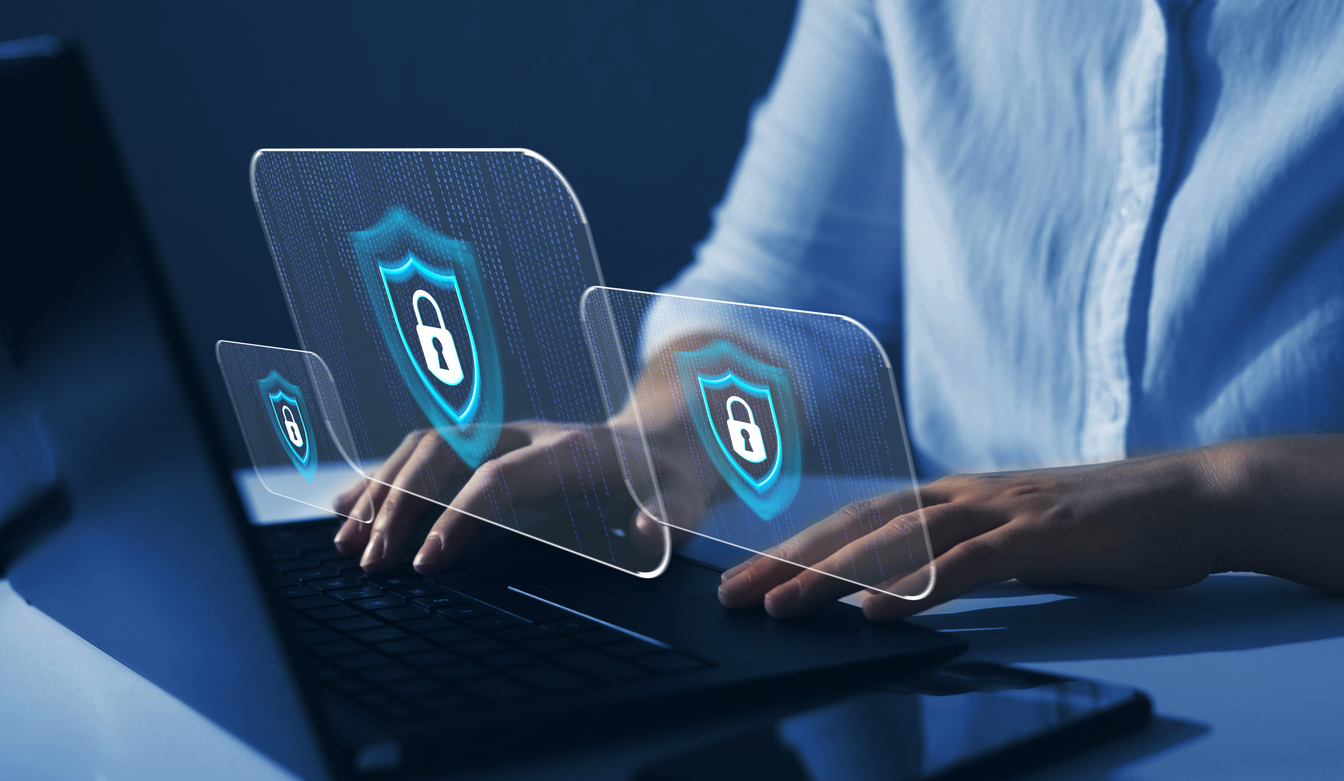
In today’s digital age, protecting your online privacy has never been more critical. With hackers, advertisers, and even governments tracking our online activities, safeguarding your personal information is essential to maintaining security and anonymity. Whether you’re browsing the internet, using social media, or shopping online, following these essential tips can help you protect your privacy and keep your data secure.
1. Use Strong and Unique Passwords
One of the most effective ways to protect your online privacy is by using strong, unique passwords for each of your online accounts. Weak or repeated passwords make it easier for hackers to gain access to multiple accounts if one gets compromised.
How to create strong passwords:
- Length: Aim for passwords that are at least 12 characters long.
- Complexity: Use a combination of uppercase letters, lowercase letters, numbers, and special characters.
- Avoid personal information: Avoid using easily guessable information like birthdays, names, or common phrases.
Pro tip:
- Use a password manager like LastPass, 1Password, or Bitwarden to generate and store complex passwords securely without having to remember them all.
2. Enable Two-Factor Authentication (2FA)
Two-factor authentication adds an extra layer of security to your accounts by requiring a second form of verification, such as a code sent to your phone, in addition to your password. Even if someone gains access to your password, they won’t be able to log in without the second factor.
How to set up 2FA:
- Most major services, including Gmail, Facebook, and online banking apps, offer 2FA in the security settings.
- You can use an authenticator app like Google Authenticator or Authy for added security, as these apps generate time-sensitive codes that are more secure than SMS codes.
Pro tip:
- Whenever possible, choose authenticator apps over SMS-based 2FA, as SMS can be intercepted through methods like SIM swapping.
3. Be Mindful of Public Wi-Fi
Public Wi-Fi networks, such as those in cafes, airports, and hotels, are convenient but often unsecured, making them a target for hackers. When using public Wi-Fi, your online activities can be easily intercepted, exposing sensitive information like passwords, credit card numbers, and personal emails.
How to stay safe on public Wi-Fi:
- Use a VPN: A virtual private network (VPN) encrypts your internet traffic, making it much harder for anyone to snoop on your activities. Popular VPN services include NordVPN, ExpressVPN, and CyberGhost.
- Avoid logging into sensitive accounts: Avoid accessing your bank accounts, emails, or other sensitive accounts while on public Wi-Fi.
- Turn off file sharing: Disable file sharing and AirDrop on your device when using public Wi-Fi to prevent others from accessing your files.
Pro tip:
- Set your device to automatically forget public Wi-Fi networks after use to avoid automatically reconnecting to insecure networks in the future.
4. Limit Social Media Sharing
Social media platforms often encourage users to share personal information publicly, but oversharing can put your privacy at risk. Information like your location, birthdate, or even vacation plans can be used by cybercriminals for phishing attacks or identity theft.
How to limit social media exposure:
- Review privacy settings: Adjust your social media privacy settings to limit who can see your posts and personal information. On platforms like Facebook, you can restrict your profile visibility to friends or specific groups.
- Avoid sharing location data: Be cautious about sharing your real-time location on social media, as it can reveal where you are and make your home vulnerable while you’re away.
- Remove personal identifiers: Avoid posting personal details such as your phone number, home address, or employer.
Pro tip:
- Regularly review and clean up your social media history by deleting old posts, photos, or information that you no longer want to be public.
5. Use Encrypted Messaging Apps
Many popular messaging apps do not offer end-to-end encryption, meaning that your conversations can potentially be intercepted by hackers or even monitored by the companies themselves. Switching to an encrypted messaging app ensures that only you and the recipient can read your messages.
Best encrypted messaging apps:
- Signal: Signal is widely considered the gold standard for private messaging, offering end-to-end encryption, disappearing messages, and the ability to lock chats with a passcode.
- WhatsApp: While owned by Facebook, WhatsApp does offer end-to-end encryption for all messages and calls.
- Telegram: Telegram offers a “Secret Chat” feature, which provides end-to-end encryption, although regular chats are stored in the cloud.
Pro tip:
- Enable disappearing messages or self-destructing messages for even more security on apps like Signal and Telegram, so your messages are automatically deleted after a set time.
6. Regularly Update Software and Devices
Keeping your software and devices up to date is essential for online privacy. Software updates often include security patches that fix vulnerabilities, so failing to update can leave you exposed to cyberattacks.
How to stay updated:
- Turn on automatic updates: Enable automatic updates for your operating system, web browser, and apps to ensure you always have the latest security patches.
- Update antivirus and security software: Make sure your antivirus software is up to date to protect against the latest threats, such as malware and ransomware.
Pro tip:
- Regularly check for firmware updates on devices like your router or smart home gadgets, as outdated firmware can also introduce security risks.
7. Beware of Phishing Scams
Phishing is one of the most common tactics used by cybercriminals to steal sensitive information, such as passwords and credit card details. Phishing attacks often come in the form of deceptive emails, text messages, or websites that trick users into providing personal data.
How to spot phishing attempts:
- Check the sender’s email address: Phishing emails often come from addresses that look similar to legitimate ones but contain small differences, such as extra characters or misspellings.
- Avoid clicking on links in unsolicited emails: Instead of clicking links in an email, go directly to the website by typing the URL into your browser’s address bar.
- Look for suspicious language: Phishing messages often use urgent or threatening language, such as “Your account will be closed” or “Immediate action required.”
Pro tip:
- Use a phishing filter or browser extension, such as those offered by Norton or Avast, to help identify and block phishing websites.
8. Use a Secure Browser
Not all browsers are created equal when it comes to protecting your privacy. Some browsers, like Google Chrome, collect data on your browsing habits, while others are designed with privacy in mind.
Best browsers for privacy:
- Brave: A privacy-focused browser that blocks trackers and ads by default while offering faster browsing speeds.
- Firefox: With a focus on privacy and customization, Firefox includes features like enhanced tracking protection and the ability to block third-party cookies.
- Tor Browser: For maximum anonymity, the Tor Browser routes your internet traffic through multiple servers, making it much harder to track your online activity.
Pro tip:
- Enable private browsing mode or “Incognito” mode in your browser to prevent your browsing history from being saved on your device.
9. Clear Your Cookies and Cache Regularly
Websites store cookies and cache files on your device to remember information like your login details, preferences, and browsing history. However, cookies can also be used to track your online behavior and serve targeted ads.
How to clear cookies and cache:
- Go to your browser’s settings and look for the option to clear browsing data, cookies, and cache.
- You can also adjust your browser’s settings to block third-party cookies altogether, which helps prevent advertisers from tracking your activity across different sites.
Pro tip:
- Consider using browser extensions like Privacy Badger or uBlock Origin, which block trackers and cookies automatically.
10. Monitor Your Digital Footprint
Your digital footprint includes all the information about you that exists online. To maintain control over your online privacy, regularly monitor your digital footprint and take steps to reduce the amount of personal data available.
How to monitor your footprint:
- Google yourself: Search your name to see what information comes up and whether it’s publicly accessible.
- Set up alerts: Use Google Alerts to monitor mentions of your name or email address online.
- Delete unused accounts: If you no longer use certain online services or social media platforms, delete your accounts to reduce the amount of data stored about you.
Pro tip:
- Consider using a service like DeleteMe, which helps you remove personal information from data brokers and public databases.
Protecting your online privacy requires a proactive approach, from securing your accounts with strong passwords to being mindful of what you share online. By following these essential tips, you can significantly reduce your risk of being targeted by hackers, data miners, or malicious websites, and take control of your personal data in an increasingly connected world.







